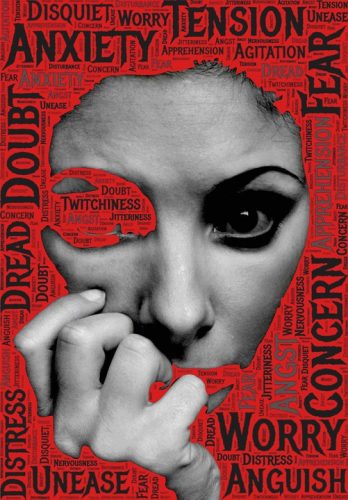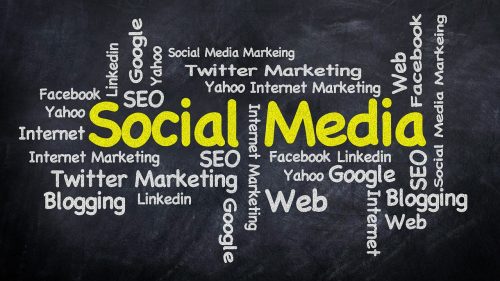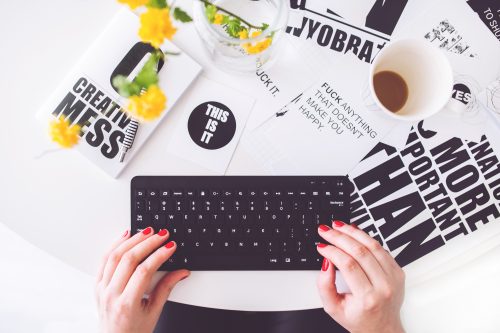A Team Of Researchers Say YES!
Can social media help people who have a social anxiety disorder or social phobia? One team of researchers answered with a resounding YES and backed this with the results of their recent undertaking. Read on!

Getting To Know Social Anxiety, Social Phobia
There are over 300 words you can use in place of shyness, the act of being shy, introverted, diffident, and afraid. But social anxiety isn’t just merely shyness – it’s more. It is when one is fearful of situations where he meets and interacts with other people. It is a SOCIAL PHOBIA.
“People with social anxiety disorder experience anxiety when faced with social situations. They do not believe their anxiety is related to an illness or disease, yet have little control over their fear of social interactions.” Charmaine J. Simmons, LPC explains. Social anxiety is an oxymoron in itself. People who have the disorder want badly to be social – to meet people and make new friends, be in social gatherings, and get included in groups. However, their anxiety holds them back from doing these exact things. And those who suffer from this disorder experience terrible distress when:
- They become the center of attention
- They’re introduced to other people for the first time, especially to people in authority
- They’re tasked to give out a public speech or say something in front of a crowd
- They’re criticized, teased or even praised
- They find themselves in social situations
In extreme cases, individuals with social phobia find it hard to talk, make phone calls, write, and even swallow when in public!
It seems that the only solution to this psychological condition is living the life of a recluse.

Social Media: A Savior?
Nevertheless, a team of researchers said that social media, microblogging specifically, helps individuals with social anxiety to express themselves when they feel the need to without having to go and talk to someone face-to-face adding to their distress.
“We don’t always know causation in psychology — especially without being able to measure something for a long time — but there are a lot of correlational studies that are pointing to social media and digital phone use,” – Alicia H. Clark, Psy.D.
The study they conducted yielded these results:
The undirected nature of microblogging (expressing something through tweets or social media posts like in Facebook) allows those who are socially afraid to reach out to anyone without having actual conversations and worrying if they’re a bother to someone in particular. Not only does this put to light one significant reason why people use social networks online or why they value them, but it’s also a potential communication tool for people who have social anxiety or are afraid to talk to others, even their own families.
Writing posts online knowing that somebody will be able to read it makes connecting with others less threatening to individuals who have reclusive tendencies.
Furthermore, it satisfies their need to connect with others when they’re on the low, thus, alleviating whatever negative feelings they are harboring inside of them.The study showed that people who post updates on social media networks subconsciously think others will respond to their writing, thus, bringing about a sense of wellbeing.
“Again, it all boils down to people’s need to reconnect with others, a characteristic highly impaired in individuals who have social anxiety,” said one of the researchers.
“The rise and growing significance of social media has caused an influx of mental health concerns, such as low self-esteem, depression, and anxiety. Now is the time to start paying attention to how social media is influencing your life choices and mental health.” –Brie Shelly, MS, LMHC, RYT

Balancing Act
But despite the promising results this new study heralded, we couldn’t just discredit the many other undertakings regarding the adverse affects social media has on people. And for Boston mental counselor Bill Munze, using social media to help individuals suffering from social media is both a hit and a miss.
Munze believes that social media plays out a distorted reality as people only post what they want the world to see, mostly positive and happy updates. Then some viewers see these and compare their not-so-stellar lives with them resulting in discontent, anger, and envy that could eventually end up in depression.
“There are a lot of studies taking social media and depression into account, and the results are grim,” he said.
He added in conclusion: “Is social media advantageous or not? The answer to that depends on the person you’re asking it to. We should put this to mind as well – that social media mustn’t take the place of actual face-to-face interactions.”
